
Kanazawa: Japan's Timeless Gem
Kanazawa, located on the western coast of Japan's Honshu Island, is a city where history and modernity blend seamlessly. Known for its well-preserved Edo-era districts, beautiful gardens, and rich cultural heritage, Kanazawa offers a unique glimpse into Japan's past while still embracing contemporary life. Kenrokuen Garden, one of Japan's three great gardens, is a must-visit. With its seasonal beauty, it offers a serene escape in the heart of the city. Nearby, Kanazawa Castle stands as a testament to the city's historical significance, offering panoramic views and a deep dive into feudal Japan. The Higashi Chaya District is another highlight, where traditional teahouses and narrow streets transport visitors back in time. Here, you can experience the elegance of geisha performances and savor local delicacies. Don't miss the 21st Century Museum of Contemporary Art, which showcases modern creativity and thought-provoking exhibits. Kanazawa is also renowned for its culinary delights, especially fresh seafood from the nearby Sea of Japan. Omicho Market is the place to sample a variety of local dishes and purchase unique souvenirs. Additionally, the city is famous for its gold leaf production, which can be seen adorning everything from sweets to crafts. In Kanazawa, traditional crafts are still very much alive. Visit the Nagamachi Samurai District to see well-preserved samurai houses and learn about the city's artisans. Kanazawa's commitment to preserving its cultural heritage while fostering innovation makes it a captivating destination for any traveler.
Local tips in Kanazawa
- Visit Kenrokuen Garden early in the morning to avoid crowds and enjoy the serene atmosphere.
- Purchase a combined ticket for Kanazawa Castle and Kenrokuen Garden to save money.
- Explore the Higashi Chaya District in the late afternoon for the best light for photography.
- Try the local seafood at Omicho Market for a true taste of Kanazawa's culinary heritage.
- Take a gold leaf workshop to create your own unique souvenir.
- Use the Kanazawa Loop Bus to conveniently visit the city's main attractions.
- Stay in a traditional ryokan for an authentic Japanese experience.
Neighbourhoods in Kanazawa
Kanazawa: Japan's Timeless Gem
Kanazawa, located on the western coast of Japan's Honshu Island, is a city where history and modernity blend seamlessly. Known for its well-preserved Edo-era districts, beautiful gardens, and rich cultural heritage, Kanazawa offers a unique glimpse into Japan's past while still embracing contemporary life. Kenrokuen Garden, one of Japan's three great gardens, is a must-visit. With its seasonal beauty, it offers a serene escape in the heart of the city. Nearby, Kanazawa Castle stands as a testament to the city's historical significance, offering panoramic views and a deep dive into feudal Japan. The Higashi Chaya District is another highlight, where traditional teahouses and narrow streets transport visitors back in time. Here, you can experience the elegance of geisha performances and savor local delicacies. Don't miss the 21st Century Museum of Contemporary Art, which showcases modern creativity and thought-provoking exhibits. Kanazawa is also renowned for its culinary delights, especially fresh seafood from the nearby Sea of Japan. Omicho Market is the place to sample a variety of local dishes and purchase unique souvenirs. Additionally, the city is famous for its gold leaf production, which can be seen adorning everything from sweets to crafts. In Kanazawa, traditional crafts are still very much alive. Visit the Nagamachi Samurai District to see well-preserved samurai houses and learn about the city's artisans. Kanazawa's commitment to preserving its cultural heritage while fostering innovation makes it a captivating destination for any traveler.
When is the best time to go to Kanazawa?
Iconic landmarks you can’t miss
Kenroku-en
Discover Kenrokuen Garden in Kanazawa: A landscape masterpiece blending history, nature, and traditional Japanese aesthetics.
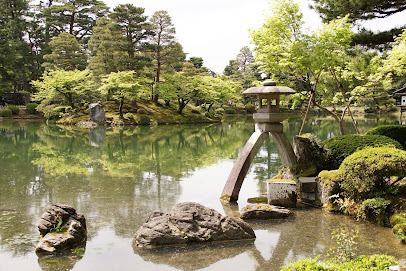
Higashi Chaya District
Explore Kanazawa's enchanting Higashi Chaya District: a preserved geisha district with Edo-era architecture, teahouses, and gold leaf crafts.
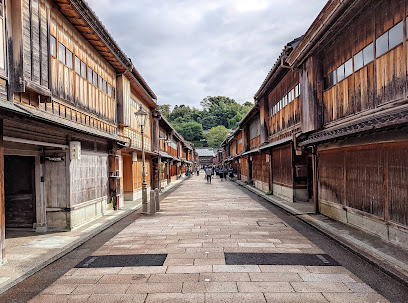
Omicho Market
Explore Omicho Market in Kanazawa, a vibrant hub of fresh seafood, local produce, and delectable street food that showcases Japan's culinary delights.
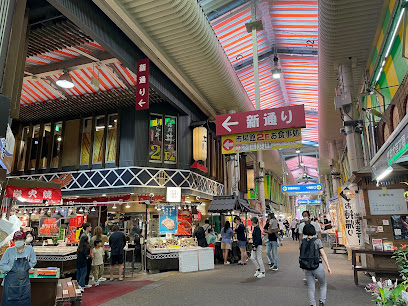
Kanazawa Castle Park
Explore Kanazawa Castle Park: A historical treasure showcasing the grandeur of the Maeda clan and Edo-era artistry in the heart of Kanazawa.
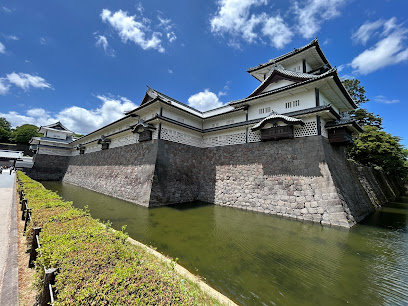
Myouryuji
Explore Kanazawa's 'Ninja Temple': A labyrinthine structure with hidden passages and ingenious defenses, revealing feudal secrets.
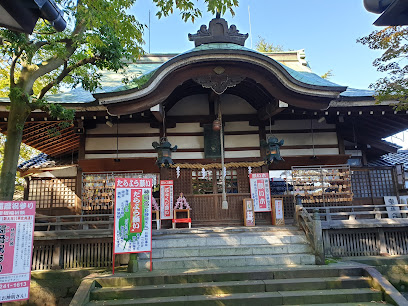
Nagamachi District
Explore Kanazawa's Nagamachi Samurai District: A preserved glimpse into feudal Japan with historic homes, earthen walls, and serene canals.
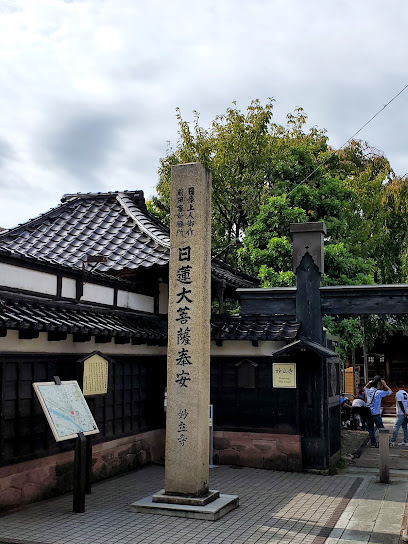
Nomura-ke Samurai Residence
Explore a beautifully preserved samurai residence and garden in Kanazawa's historic Nagamachi district, offering a glimpse into Edo-era Japan.
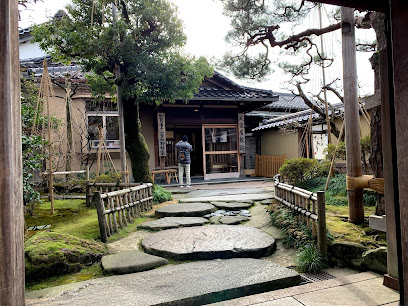
Tsuzumi-mon Gate
Kanazawa's iconic wooden gate at the station's east exit, inspired by Noh drums, welcomes visitors with tradition and beauty.
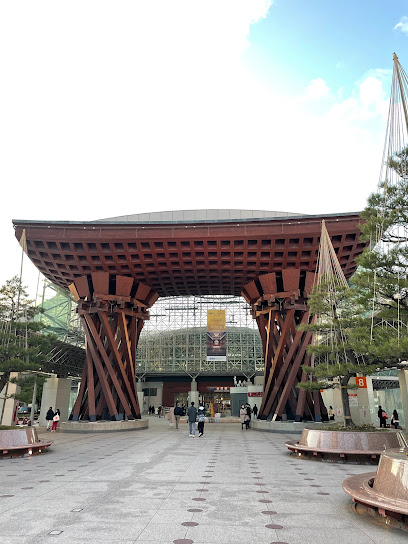
D.T. Suzuki Museum
Find serenity and contemplate Zen philosophy at the D.T. Suzuki Museum, a tribute to the influential Buddhist scholar in tranquil Kanazawa.
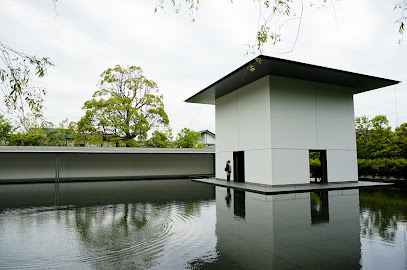
Nishi Chaya District
Explore Kanazawa's Nishi Chaya District: a historic geisha district with preserved teahouses, museums, and traditional charm.
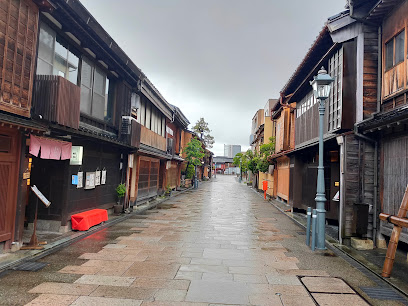
Ishikawa Local Products Center
Discover Ishikawa's cultural heart: local crafts, flavors, and hands-on experiences await near Kanazawa's famed Kenrokuen Garden.
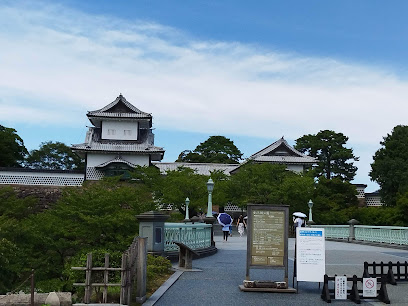
ROUND1 Stadium Kanazawa
Kanazawa's ultimate entertainment destination: bowling, karaoke, arcade games, and Spo-cha for endless fun, open late!
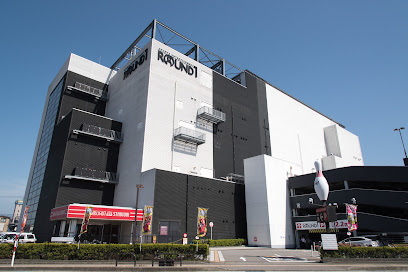
Kazuemachi Chaya District
Discover the serene beauty of Kazuemachi Chaya District, one of Kanazawa's best-preserved geisha districts, offering a glimpse into traditional Japanese culture.
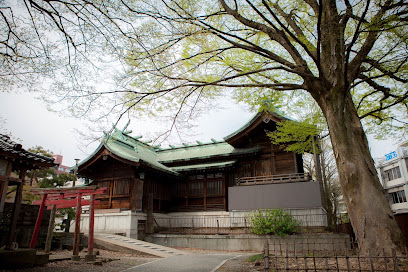
Daijoji Kyuryo Park
Escape to Daijoji Kyuryo Park for panoramic views, tranquil gardens, and a peaceful retreat in Kanazawa.
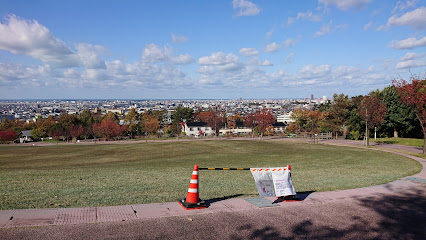
Ishikawa-mon Gate
Step back in time at Ishikawa-mon Gate, a beautifully reconstructed entrance to Kanazawa Castle Park showcasing feudal Japan's architectural prowess.

Unmissable attractions to see
Shirakawa-go
Explore Shirakawa-go: A UNESCO Heritage Site with captivating gassho-zukuri houses and breathtaking views of the Japanese Alps, perfect for cultural immersion.
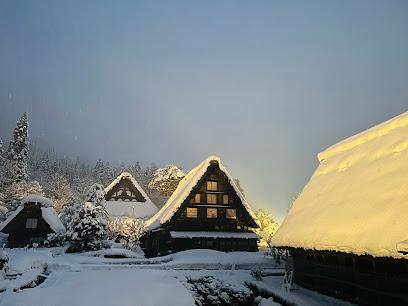
Kenroku-en
Discover the serene beauty of Kenroku-en, one of Japan's top three gardens, featuring breathtaking landscapes and cultural heritage in Kanazawa.
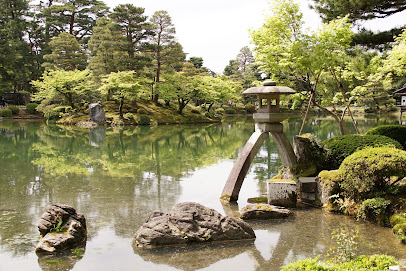
Higashi Chaya District
Explore the historic Higashi Chaya District in Kanazawa, where traditional tea houses and cultural heritage await every visitor.
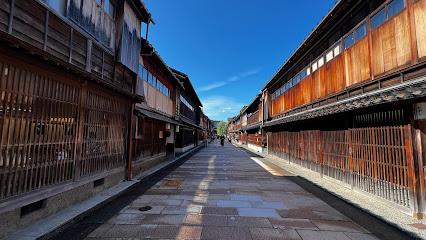
21st Century Museum of Contemporary Art, Kanazawa
Explore modern artistry at the 21st Century Museum of Contemporary Art, Kanazawa - a cultural gem of Japan's contemporary art scene.
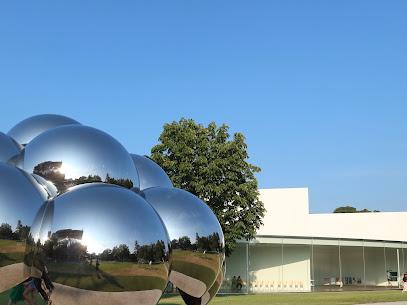
Kanazawa Castle Park
Discover the enchanting beauty of Kanazawa Castle Park, where history meets nature in a serene Japanese landscape.
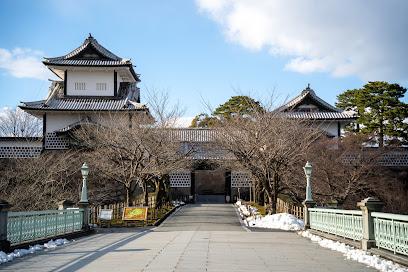
Oyama Shrine
Explore the tranquil beauty and cultural significance of Oyama Shrine, a must-visit Shinto shrine in the heart of Kanazawa, Japan.
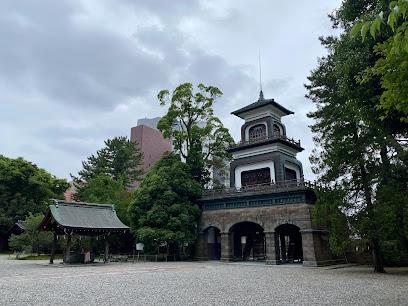
Shiroyama Tenshukaku Observation Deck
Experience unparalleled views of Shirakawa-go from Shiroyama Tenshukaku Observation Deck, a must-see destination for every traveler in Gifu Prefecture.
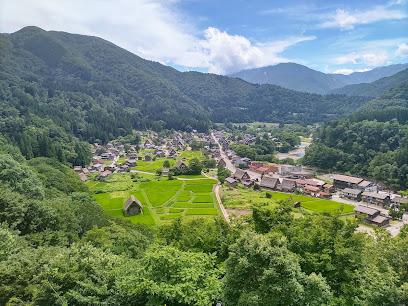
Ogimachi Castle Observation Deck
Discover breathtaking views and rich history at Ogimachi Castle Observation Deck in Shirakawa-go, a UNESCO World Heritage Site in Japan.
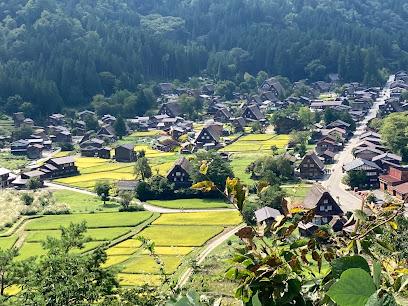
Nagamachi District
Discover the enchanting Nagamachi District, where the spirit of the samurai lives on through its beautiful architecture and rich cultural heritage.
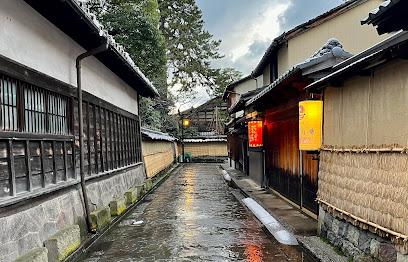
Nomura-ke Samurai Heritage Residence
Explore the Nomura-ke Samurai Heritage Residence in Kanazawa, a historical gem showcasing the elegance of samurai life and Japanese culture.
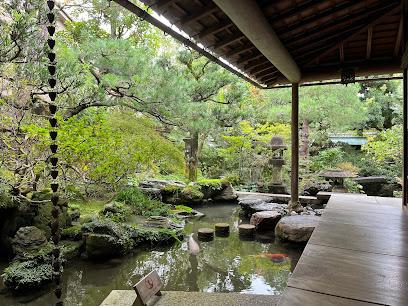
Wada House
Discover the charm of Wada House, a UNESCO World Heritage Site showcasing traditional gassho-zukuri architecture in the heart of Shirakawa-go.
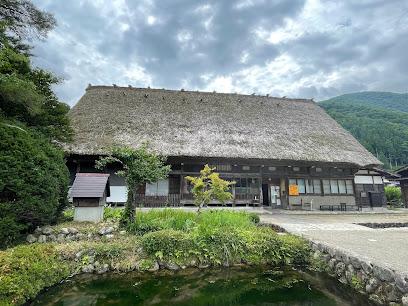
Myouryuji
Experience the serene beauty and cultural richness of Myouryuji Temple in Kanazawa, a tranquil Buddhist haven steeped in history.
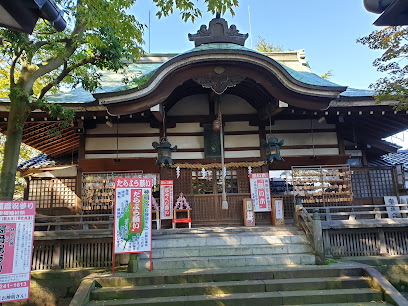
World Heritage Suganuma Gassho-zukuri Village
Explore Suganuma Gassho-zukuri Village, a UNESCO World Heritage site showcasing traditional Japanese architecture in the stunning Toyama mountains.
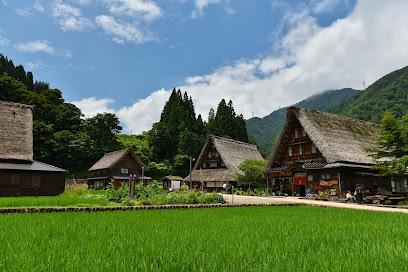
Natadera Temple
Experience the serene beauty and spiritual essence of Natadera Temple, a historic Buddhist sanctuary in Ishikawa, Japan.
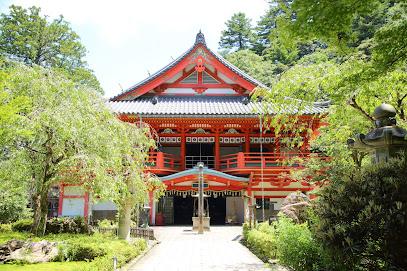
D.T. Suzuki Museum
Discover the tranquil D.T. Suzuki Museum in Kanazawa, a serene tribute to Zen Buddhism and its profound philosophies.
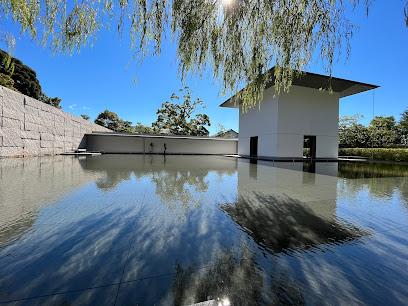
Essential places to dine
Grill Otsuka
Discover Grill Otsuka in Kanazawa: Where Japanese tradition meets Western culinary excellence in every delicious bite.
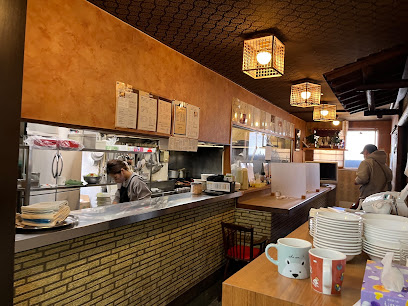
Turban Curry Main Store
Discover authentic Japanese curry at Turban Curry Main Store in Kanazawa - where flavor meets tradition in every dish.
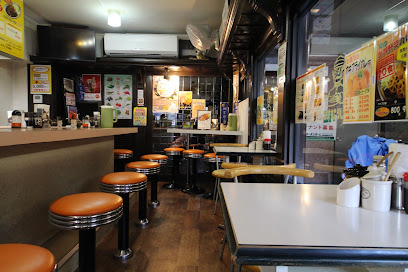
Kourin Sushi 香りん寿司
Experience authentic Japanese sushi at Kourin Sushi in Kanazawa - where tradition meets flavor in every bite.
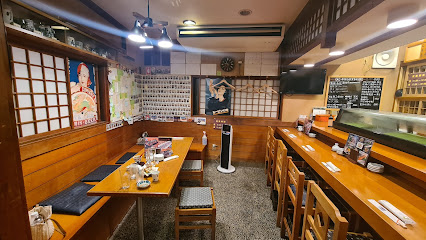
Uchuken Syokudo
Discover Uchuken Syokudo in Kanazawa: where authentic Japanese teishoku meets affordability in a cozy setting.
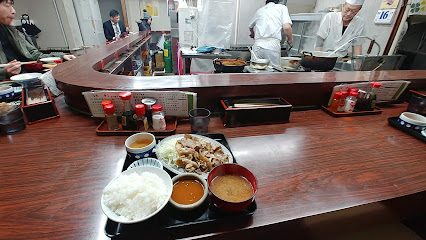
Akadama Honten
Experience authentic Japanese oden at Akadama Honten in Kanazawa—where tradition meets flavor in every dish.
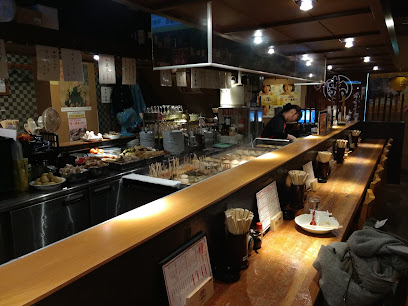
Ippudo
Experience authentic Japanese ramen at Ippudo in Kanazawa – where every bowl promises rich flavors and culinary delight.
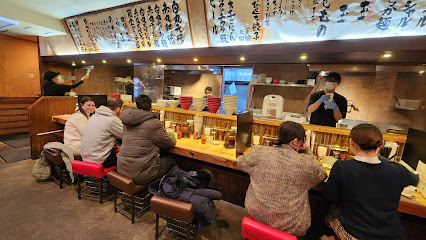
Curio Espresso and Vintage Design Café
Experience the charm of Curio Espresso and Vintage Design Café in Kanazawa – where delicious brunch meets vintage vibes.
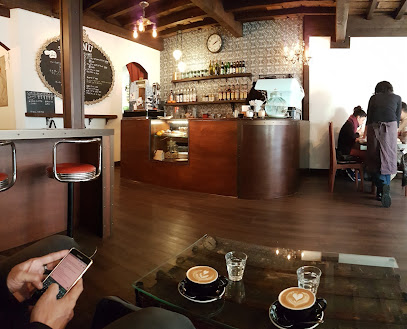
Fuwari
Discover authentic izakaya dining at Fuwari in Kanazawa – where tradition meets modern flavor.
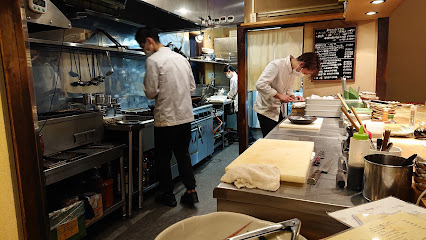
The Godburger
Experience gourmet burgers with local flair at The Godburger in Kanazawa – where culinary creativity meets comfort food.
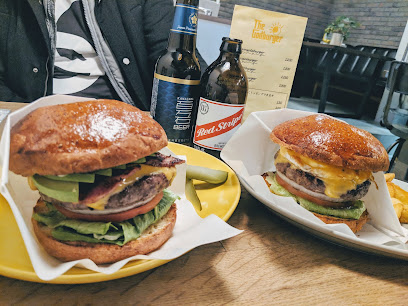
Iki-iki Tei
Discover authentic sushi at Iki-iki Tei in Kanazawa – where tradition meets flavor in every bite.
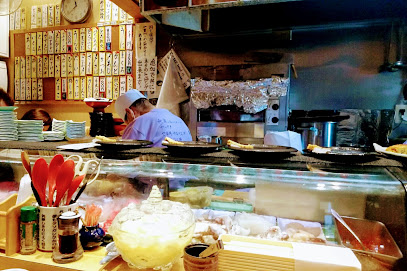
Aashirwad
Discover the rich flavors of India at Aashirwad in Kanazawa—where traditional meets modern in a delightful dining experience.
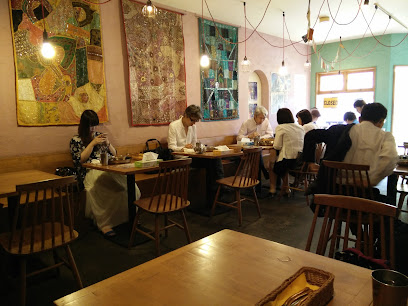
Itaru
Discover the authentic taste of Japan at Itaru Izakaya in Kanazawa – where traditional flavors meet warm hospitality.
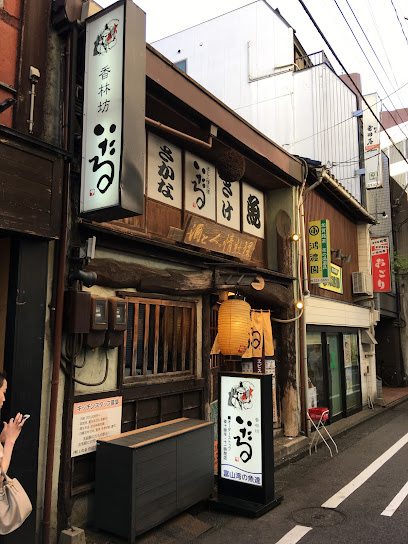
Pizzeria e Trattoria Da TAKE
Discover authentic Italian flavors at Pizzeria e Trattoria Da TAKE in Kanazawa - a culinary journey through Italy awaits you.
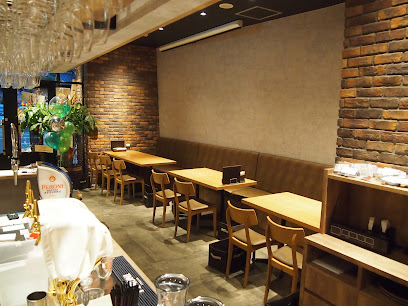
Kagaya Kanazawa
Discover authentic Japanese cuisine at Kagaya Kanazawa – where seasonal flavors meet exquisite presentation in every dish.
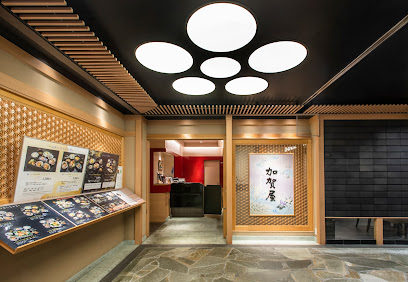
Daimyo Chaya
Experience exquisite crab dishes and authentic kaiseki cuisine at Daimyo Chaya in Kanazawa – a true culinary delight!
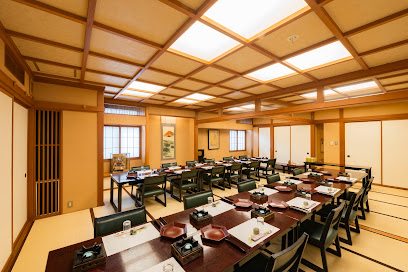
Markets, malls and hidden boutiques
Kanazawa Hyakubangai
Discover the ultimate shopping and dining experience at Kanazawa Hyakubangai, where tradition meets modernity in the heart of Kanazawa.
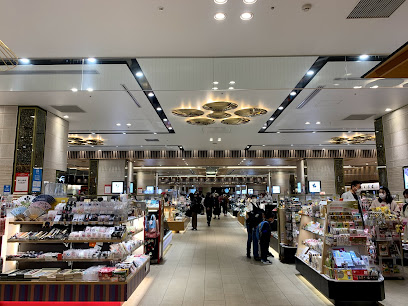
Kanazawa Forus
Explore Kanazawa Forus – your ultimate shopping destination with diverse shops, delightful dining, and a vibrant atmosphere in the heart of Kanazawa.
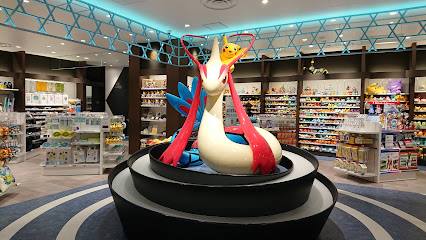
Daiwa Korinbo Store
Discover the charm of Kanazawa at Daiwa Korinbo Store, where tradition meets modern retail in a shopper's paradise.
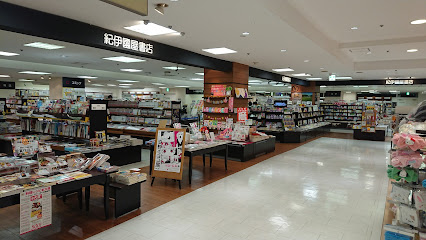
KANAZAWA M'ZA
Explore KANAZAWA M'ZA, a premier department store in the heart of Kanazawa, offering fashion, local delicacies, and unique souvenirs.
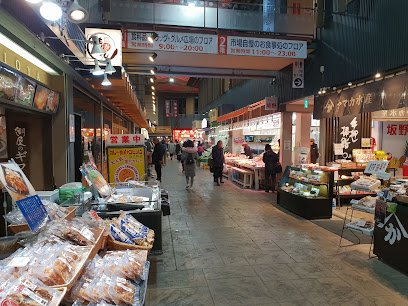
Korinbo Tokyu Square
Explore the vibrant Korinbo Tokyu Square in Kanazawa, where shopping meets culture in a modern setting.
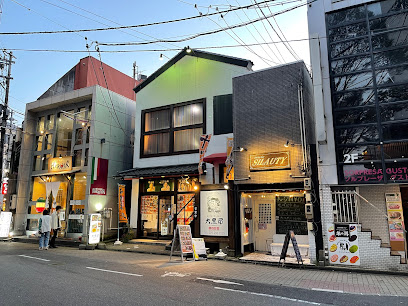
Ishikawa Local Products Center
Explore Ishikawa Local Products Center for authentic souvenirs and local delicacies that embody Kanazawa's rich cultural heritage.
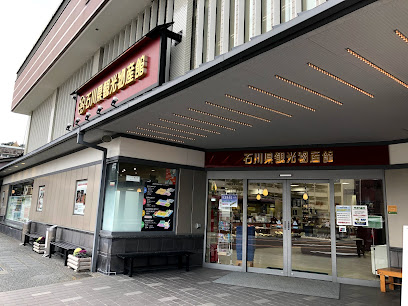
Katamachi Kirara
Experience the best of shopping and dining at Katamachi Kirara, the vibrant shopping mall in Kanazawa, Ishikawa, where modern meets tradition.
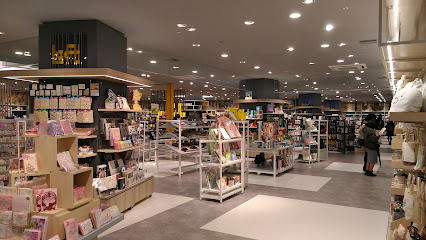
Rinto 100 Bangai Kanazawa
Discover the vibrant shopping and dining experience at Rinto 100 Bangai in Kanazawa, where tradition meets modernity in a delightful setting.
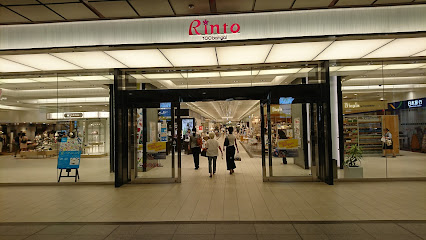
Hands Kanazawa Store
Explore a captivating range of unique gifts, home goods, and Japanese crafts at Hands Kanazawa Store, your perfect souvenir stop in Kanazawa.
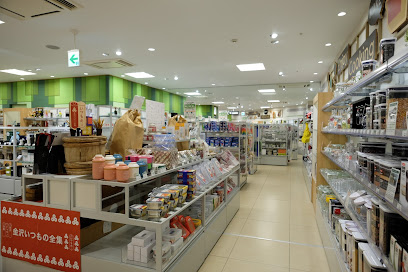
Animate Kanazawa
Explore the vibrant world of anime and manga at Animate Kanazawa, your ultimate destination for pop culture merchandise in Japan.
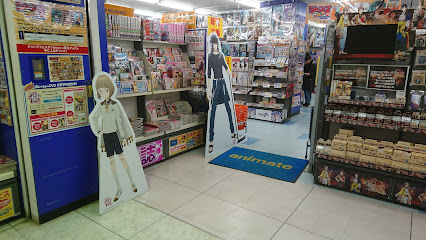
Kanazawa Hakomachi
Discover unique shopping and dining experiences at Kanazawa Hakomachi, a vibrant shopping mall in the heart of Kanazawa, Japan.
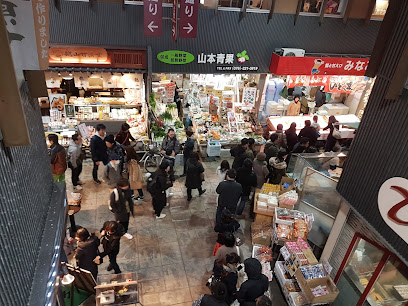
Kinpakuya Sakuda Head Shop & Workshop
Explore exquisite gold leaf artistry and unique gifts at Kinpakuya Sakuda in Kanazawa's historic Higashiyama district.
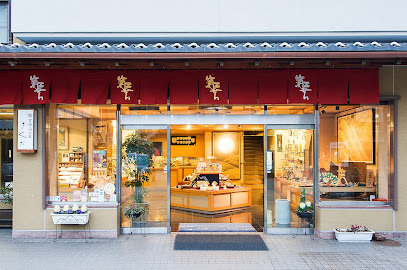
Kanazawa Loft
Explore Kanazawa Loft: Your ultimate shopping destination for cosmetics, home goods, and unique Japanese novelties in the heart of Kanazawa.
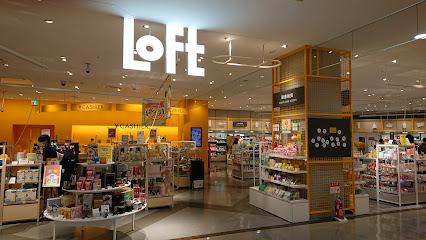
Hakuza
Discover the essence of Kanazawa at Hakuza, where tradition meets craftsmanship in a captivating selection of Japanese handicrafts.
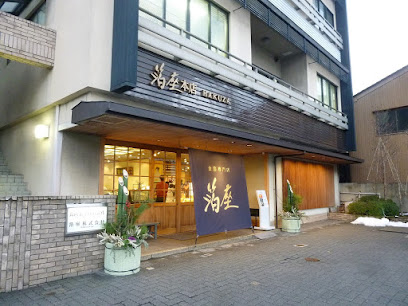
CoCoTTo KANAZAWA
Experience shopping like never before at CoCoTTo KANAZAWA, where modern boutiques meet vintage charm in a vibrant setting.
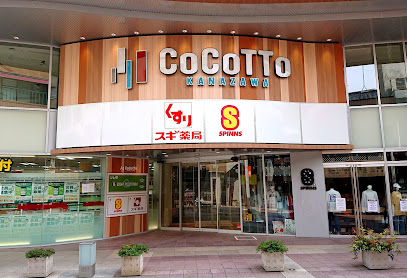
Essential bars & hidden hideouts
Oriental Brewing
Explore Oriental Brewing: A Craft Beer Paradise in Kanazawa with Unique Brews, Delicious Pizzas, and a Cozy Atmosphere.
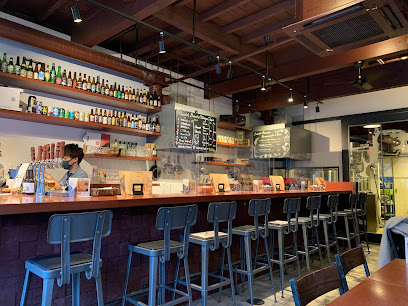
FURANSU COCKTAIL BAR フランス
Experience the elegance of Furansu Cocktail Bar in Kanazawa, where masterful mixology meets stunning presentation for an unforgettable night out.
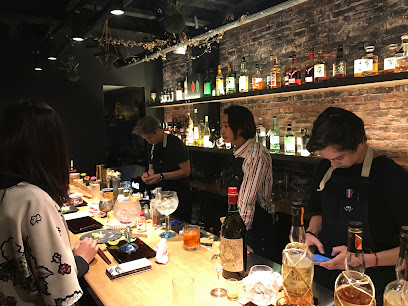
Kohaku Bar
Discover the vibrant Kohaku Bar in Kanazawa, where expertly crafted cocktails meet warm ambiance for an unforgettable nightlife experience.
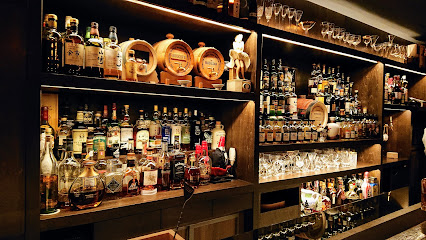
Kanazawa Music Bar
Experience the vibrant nightlife at Kanazawa Music Bar, where live music and delightful drinks create unforgettable memories in Kanazawa.
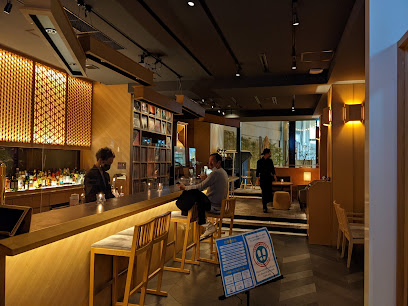
JIGGER BAR St.Louis
Experience the vibrant nightlife of Kanazawa at Jigger Bar, where expertly crafted cocktails and a lively atmosphere await.
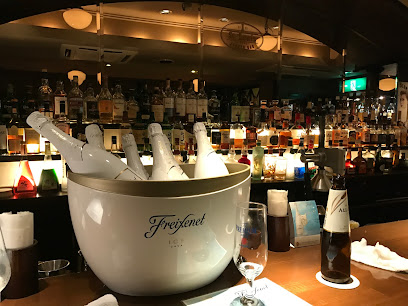
The Londonya Bar
Experience the vibrant atmosphere and diverse drink selection at The Londonya Bar in Kanazawa's lively Katamachi district.
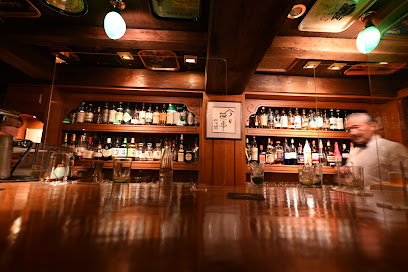
Bar Spoon
Experience the vibrant nightlife of Kanazawa at Bar Spoon, where innovative cocktails meet a cozy atmosphere in the heart of Katamachi.
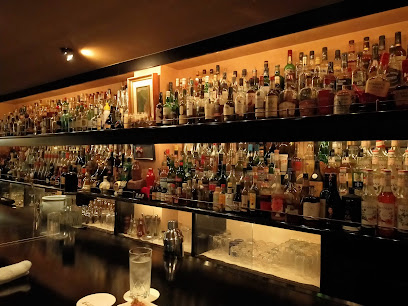
Infusion
Discover the vibrant nightlife of Kanazawa at Infusion, where expertly crafted cocktails and a lively atmosphere await every visitor.
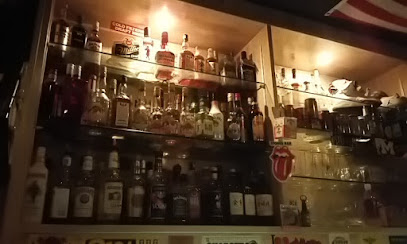
Nyumba
Discover the unique blend of traditional and modern dining at Nyumba, a lively izakaya bar in Kanazawa, offering exquisite food and a vibrant atmosphere.
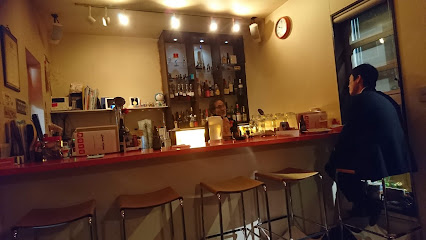
Bar Tobira (Door)
Discover the vibrant nightlife at Bar Tobira in Kanazawa – a perfect blend of traditional and modern ambiance with exceptional drinks.
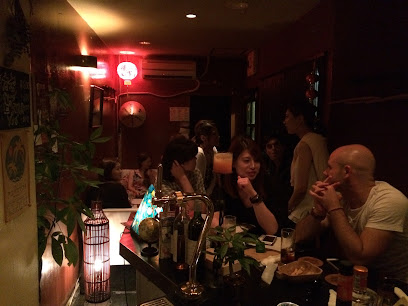
ZOWIE
Discover the taste of Ireland at ZOWIE, an authentic Irish pub in Kanazawa offering delicious food, great drinks, and a welcoming atmosphere.
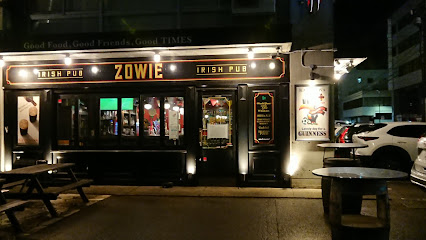
Sturgis
Discover the vibrant nightlife and unique drinks at Sturgis, a must-visit bar in Kanazawa, Japan.
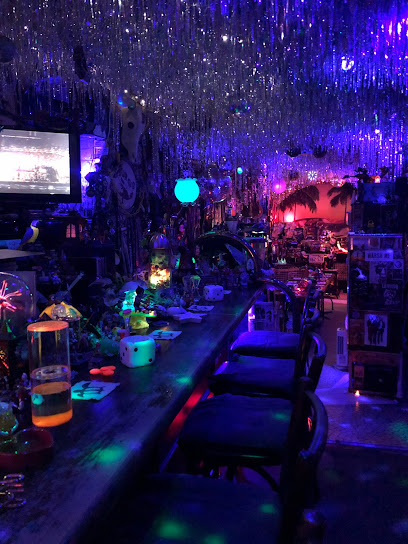
THE HIDEOUT
Discover the vibrant nightlife of Kanazawa at The Hideout, a bar offering craft cocktails and a welcoming atmosphere in the heart of Katamachi.
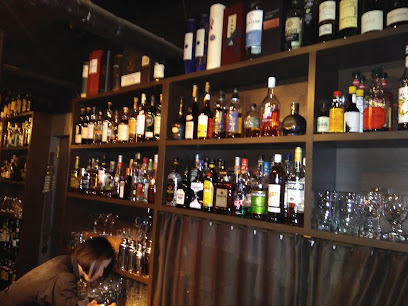
金沢・片町 BAR de JOAO(バードジョアン)
Discover the lively BAR de JOAO in Kanazawa - a cocktail bar offering an unforgettable nightlife experience with exquisite drinks and vibrant atmosphere.
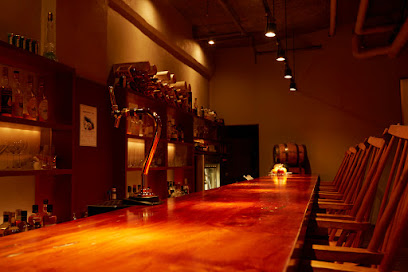
Travel experiences inspired by this city
Explore more travel diariesLocal Phrases
-
- Helloこんにちは
[Konnichiwa] - Goodbyeさようなら
[Sayonara] - Yesはい
[Hai] - Noいいえ
[Iie] - Please/You're welcomeどうぞ
[Douzo] - Thank youありがとうございます
[Arigatou gozaimasu] - Excuse me/Sorryすみません
[Sumimasen] - How are you?お元気ですか?
[Ogenki desu ka?] - Fine. And you?元気です。あなたは?
[Genki desu. Anata wa?] - Do you speak English?英語を話せますか?
[Eigo o hanasemasu ka?] - I don't understandわかりません
[Wakarimasen]
- Helloこんにちは
-
- I'd like to see the menu, pleaseメニューを見せていただきたいです
[Menyuu o misete itadakitai desu] - I don't eat meat肉は食べません
[Niku wa tabemasen] - Cheers!乾杯!
[Kanpai!] - I would like to pay, pleaseお会計をお願いします
[O-kaikei o onegaishimasu]
- I'd like to see the menu, pleaseメニューを見せていただきたいです
-
- Help!助けて!
[Tasukete!] - Go away!去ってください!
[Satte kudasai!] - Call the Police!警察を呼んでください!
[Keisatsu o yonde kudasai!] - Call a doctor!医者を呼んでください!
[Isha o yonde kudasai!] - I'm lost道に迷っています
[Michi ni mayotte imasu] - I'm ill具合が悪いです
[Guai ga warui desu]
- Help!助けて!
-
- I'd like to buy......を買いたいです
[... o kaitai desu] - I'm just looking見ているだけです
[Miteiru dake desu] - How much is it?いくらですか?
[Ikura desu ka?] - That's too expensiveそれは高すぎます
[Sore wa takasugimasu] - Can you lower the price?値段を下げていただけますか?
[Nedan o sagete itadakemasu ka?]
- I'd like to buy......を買いたいです
-
- What time is it?今何時ですか?
[Ima nanji desu ka?] - It's one o'clock一時です
[Ichiji desu] - Half past (10)十時半です
[Juji han desu] - Morning朝
[Asa] - Afternoon午後
[Gogo] - Evening夕方
[Yuugata] - Yesterday昨日
[Kinou] - Today今日
[Kyou] - Tomorrow明日
[Ashita] - 1一
[Ichi] - 2二
[Ni] - 3三
[San] - 4四
[Shi] - 5五
[Go] - 6六
[Roku] - 7七
[Nana] - 8八
[Hachi] - 9九
[Kyu] - 10十
[Ju]
- What time is it?今何時ですか?
-
- Where's a/the...?...はどこですか?
[... wa doko desu ka?] - What's the address?住所は何ですか?
[Jusho wa nan desu ka?] - Can you show me (on the map)?地図で見せていただけますか?
[Chizu de misete itadakemasu ka?] - When's the next (bus)?次の(バス)はいつですか?
[Tsugi no (basu) wa itsu desu ka?] - A ticket (to ....)切符(... まで)
[Kippu (... made)]
- Where's a/the...?...はどこですか?
History of Kanazawa
-
Kanazawa's origins date back to the late 16th century, when it was established as a castle town under the rule of the Maeda clan. The clan, one of the most powerful samurai families during the Sengoku period, chose Kanazawa as their base after the Battle of Sekigahara in 1600. The city quickly grew in prominence as the center of the Kaga Domain, the second-largest domain in Japan during the Edo period.
-
Kanazawa Castle, the seat of the Maeda clan, was initially constructed in 1580. Over the centuries, it was rebuilt several times following fires and other calamities. The castle stood as a symbol of the Maeda's wealth and power, featuring impressive fortifications, moats, and a labyrinth of defensive structures. Today, visitors can explore reconstructed sections like the Ishikawa-mon Gate and the Sanjikken Nagaya warehouse, which offer a glimpse into the architectural ingenuity of the era.
-
Adjacent to Kanazawa Castle lies Kenroku-en, one of Japan's Three Great Gardens. Developed over a span of nearly 200 years, starting in the early 17th century, Kenroku-en embodies the six attributes deemed essential for a perfect garden: spaciousness, seclusion, artifice, antiquity, water, and panoramic views. The garden features meticulously designed landscapes, including ponds, streams, waterfalls, and teahouses, making it a serene escape and a testament to traditional Japanese garden design.
-
During the Edo period (1603-1868), Kanazawa flourished as a cultural hub under the patronage of the Maeda clan. The city became renowned for its arts and crafts, particularly Kutani porcelain, Kaga Yuzen silk dyeing, and gold leaf production. Many of these traditional crafts are still practiced today, and visitors can experience them firsthand at various workshops and museums throughout the city.
-
In recent years, Kanazawa has become a vibrant blend of the old and the new. The opening of the Hokuriku Shinkansen in 2015 has made the city more accessible, boosting tourism and economic development. Despite modernization, Kanazawa has managed to preserve its historical charm, with districts like Higashi Chaya, Nishi Chaya, and Kazue-machi offering a glimpse into the city's past. These geisha districts, with their narrow, winding streets and traditional wooden buildings, transport visitors back in time.
-
The 21st century has seen Kanazawa emerge as a destination for contemporary art and culture. The 21st Century Museum of Contemporary Art, opened in 2004, is a prime example of this cultural renaissance. The museum's circular design and innovative exhibits have made it a landmark attraction, drawing art enthusiasts from around the world. This blend of historical preservation and modern innovation encapsulates Kanazawa's unique appeal.
Kanazawa Essentials
-
Kanazawa is accessible via several transport methods. The nearest major airport is Komatsu Airport, about 30 kilometers from the city center. From Komatsu Airport, you can take a bus or taxi to Kanazawa. Alternatively, you can fly into major airports like Tokyo's Narita or Haneda and take the Hokuriku Shinkansen (bullet train) from Tokyo Station to Kanazawa Station, a journey of approximately 2.5 to 3 hours.
-
Kanazawa has a well-developed public transportation system. The Kanazawa Loop Bus and Kenrokuen Shuttle Bus are convenient for tourists, covering major attractions like Kenrokuen Garden, Kanazawa Castle, and the 21st Century Museum of Contemporary Art. Taxis are also available and are a practical option for short distances. For a more local experience, consider renting a bicycle to explore the city at your own pace.
-
The official currency in Japan is the Japanese Yen (JPY). Credit cards are widely accepted in most hotels, restaurants, and shops in Kanazawa. However, smaller establishments, traditional inns (ryokan), and some local restaurants may only accept cash. ATMs are readily available, but ensure they accept international cards (look for 7-Eleven or Japan Post ATMs). It’s advisable to carry some cash, especially when venturing into less touristy areas.
-
Kanazawa is generally a very safe city for tourists. Crime rates are low, and violent crime is rare. However, standard precautions should be taken, such as keeping an eye on your belongings in crowded places and avoiding poorly lit areas at night. There are no specific high-crime neighborhoods targeting tourists, but it’s always wise to stay vigilant.
-
In case of emergency, dial 110 for police and 119 for fire and ambulance services. English-speaking operators are available. Kanazawa University Hospital and other local clinics offer medical services. It's advisable to have travel insurance that covers medical emergencies. For minor health issues, pharmacies (yakkyoku) are widely available, and many staff members can assist in English.
-
Fashion: Do dress modestly and neatly; casual attire is fine, but avoid overly revealing clothing. Religion: Do respect local religious customs; when visiting temples or shrines, bow at the entrance and avoid loud conversations. Public Transport: Do be respectful and quiet; avoid talking on your phone and give up your seat to elderly or disabled passengers. Greetings: Do greet people with a slight bow; handshakes are less common but acceptable in business settings. Eating & Drinking: Do try local delicacies and say 'Itadakimasu' before eating. Don’t tip in restaurants, as it is not customary and may be considered rude.
-
To experience Kanazawa like a local, visit the Omicho Market to sample fresh seafood and local produce. Take a stroll through the Higashi Chaya District to enjoy traditional teahouses and maybe catch a glimpse of geisha performances. Consider visiting the D.T. Suzuki Museum for a peaceful, contemplative experience. Don’t miss the chance to try Kanazawa’s unique cuisine, such as Jibuni (duck stew) and fresh sushi from local fish markets.
Trending Landmark in Kanazawa
-
Kenroku-en
-
Higashi Chaya District
-
Omicho Market
-
Kanazawa Castle Park
-
Myouryuji
-
Nagamachi District
-
Nomura-ke Samurai Residence
-
Tsuzumi-mon Gate
-
D.T. Suzuki Museum
-
Nishi Chaya District
-
Ishikawa Local Products Center
-
ROUND1 Stadium Kanazawa
-
Kazuemachi Chaya District
-
Daijoji Kyuryo Park
-
Ishikawa-mon Gate
Nearby Cities to Kanazawa
-
Things To Do in Nagoya
-
Things To Do in Kyoto
-
Things To Do in Nara
-
Things To Do in Osaka
-
Things To Do in Tokyo
-
Things To Do in Hiroshima
-
Things To Do in Fukuoka
-
Things To Do in Pohang
-
Things To Do in Gyeongju
-
Things To Do in Ulsan
-
Things To Do in Busan
-
Things To Do in Andong
-
Things To Do in Daegu
-
Things To Do in Chuncheon
-
Things To Do in Sapporo



























